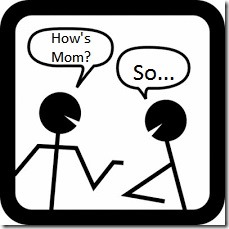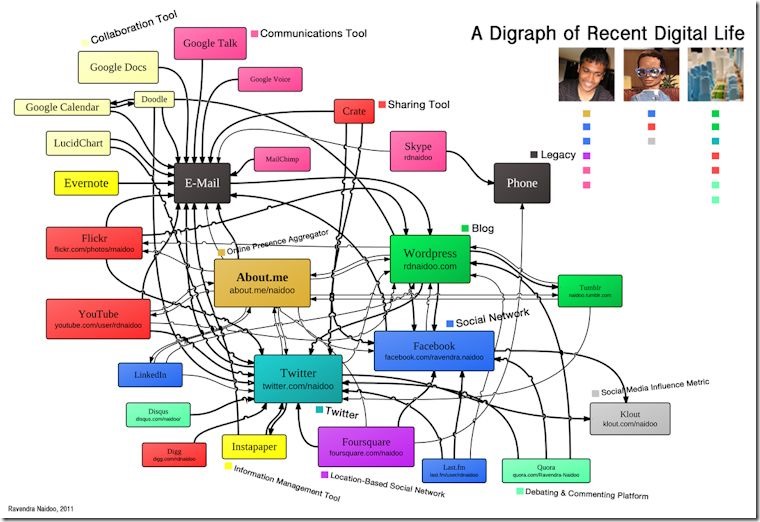I’ve been putting this off for almost year.
I thought it would go away and I could let it go. It wouldn’t and I couldn’t.
I have a visceral response every time I get in the car and hear it. Or turn on the TV and hear an interview.
It’s someone starting their answer to a question with the word “So”.
I hear it mostly on the radio in an interview (in the car). Sometimes I see it on TV if it’s a panel or forum or interview show.
The interviewer asks a question (any question) like: “How can we stop global warming?”
The guest says “So… the research shows that … blah blah blah science jargon..”
The interviewer follows up with: “and what was the first clue you were on to something?”
Guest: “So… in the timeline of incoming information and analysis, we can say that ….…”
And SO on.
My reaction goes like this:
I feel immediately like I’m being talked down to. Like the whole tone changed, it’s gotten formal. All because of one word.
I’m thinking of what’s going through the interviewer’s mind and that goes something like: “I’m sitting here talking to a pre-recorded message while they’re selling off the CBC Broadcast Centre which is alright by me because this building was the beginning of the end for public broadcasting and it’s run by accountants and lawyers and managers who got hired just because they can talk it up in meetings and, really, who cares about what this dweeb is saying anyways. They probably just want to be a media celebrity like Malcolm Gladwell and have also forgotten my name if they ever heard it in the first place.”
Why, oh, why does this affect me like this? After all, I’ve got used to “like” and “you know” and “uptalk” – though “iconic” still rankles. (is there anything not iconic nowadays?)
Beginning a answer with “so” is not to be confused with using the word properly. As in direct reference to something you just said in order to continue a thought. Or even starting a question with “so”. When they still taught grammar, phonics, and cursive writing to kids, the word “so” was introduced as a conjunction. A conjunction is a connector word. It is not a word meant to start a sentence, whether it be a plain statement or , worse, an answer to a question.
That’s the grammar crime. I know, I know, language gets bent and mutates all the time but when someone starts an answer with “so” I feel something bad.
The very first reaction, if I could freeze the first millisecond after I hear it, would be disgust or revulsion. As if I’d just seen somebody with suspicious stains on their pants. Something distasteful but something the person is not aware of. At least not aware of the effect they’re having on people.
My next reaction is some kind of pity.
As it goes on, I get irritated and angry.
It’s the same feeling I get when someone looks over my head when they talk to me or, worse, when they seem not to have listened to what I’m saying and carry on the next line in a conversation with a completely different subject.
Maybe it’s the repetition of the word that gets me. In any given interview, once a person starts this way of answering, you can bet they’ll keep on doing it for every question. Repetition drives me crazy.
The Ascendancy of “so”
In his 1999 book The New New Thing, Michael Lewis writes: ”When a computer programmer answers a question, he often begins with the word ‘so.”’ Anand Giridharadas , in the New York Times, also says “Microsoft employees have long argued that the ‘so’ boom began with them.”
They get a badge for it.
It has spread to academia, self-help authors, scientists, professionals of all kinds, and now to the great unwashed who want to get on the bandwagon of moronic speech.
‘The word is a marker of cause and result,’ says Dr Penelope Gardner-Chloros of the department of applied linguistics and communication at Birkbeck College. ‘Someone who starts an answer with “so” is marking that what he’s saying is coherent with what came before — the question. He’s saying what he wants to say, like a politician — but trying to make it sound like it’s an answer to the question.’
Mark Mason in the Spectator continues the thought:
“If this is the case, then So-sayers are planting the seeds of their own linguistic destruction. As the technique grows in popularity, we will come to recognise it more easily. It will take on the status of Harrison Ford’s tests in Blade Runner, used to tell androids from humans. Hear someone start an answer with ‘so’, and you’ll know you’re about to be spoonfed some pre-cooked PR-speak. A more sophisticated version of the old joke about knowing a politician is lying because his lips are moving.”
Those who defend this crime say it’s meant to draw people in, to include them, to show that they’ve heard them.
Galina Bolden, a linguistics scholar who has written academic papers on the use of “so,” believes that to begin a sentence with “oh,” is to focus on what you have just remembered and your own concerns. To begin with “so,” she said, drawing on her study of a database of recorded ordinary conversations, is to signal that one’s coming words are chosen for relevance to the listener.
The ascendancy of “so,” Dr. Bolden said, “suggests that we are concerned with displaying interest for others and downplaying our interest in our own affairs,” she said.
I say it’s just the opposite. To me, it’s as if I’m hearing the beginning of a recorded message, as if a robot is talking, as if I’m hearing a computer say “working” before it accesses a file.
———————-
Speaking of recorded messages, here’s one from John Rentoul of the Independent on Sunday, author of The Banned List: A Manifesto Against Jargon and Cliche. He explains why he is not so impressed on BBC Radio’s Today show.
Click on this link to hear it:
http://news.bbc.co.uk/today/hi/today/newsid_9644000/9644002.stm
The Algorithmic Age?
Like the Bronze Age or Steam Age, this term has entered the lexicon to describe how our world has changed thanks to computer programming. It’s all about smartphones and Facebook and iPads affecting our everyday lives.
Mostly, I don’t care what other people do with their toys. After all, they’re off in their own world. But my rant here about the abuse of a poor little conjunction is symptomatic of the effect of all things digital on everyday language. And it’s because of those darned algorithms.
Christopher Steiner in Automate This: How Algorithms Came to Rule Our World:
“”Algorithms have pretty much pervaded everywhere these days. Use the web, you’re using algorithms. Engage with the financial world, you’re engaging with a world driven by algorithms. Look at any image on any screen, use your mobile, satnav and any other piece of technology and you’re in the world of algorithms. From markets to medicine, the 21st century is being shaped by the power of algorithms to do things faster, cheaper and better than we humans, and their reach is getting bigger every day.”
So… once again, has the medium become the message?
If our world is mediated through computer code and the devices it governs, will it also determine how we use words and ultimately how we think?
The bottom line is that computer code and the devices it works on is more important than human communication. The cart is driving the horse. I feel like the old coot who cares about the correct use of language. But it seems silly to be a brainiac in science or technology or any area of academe and have to filter all that knowledge and all those ideas through “leet” speak or the latest mobile phone vocabulary.
Why not cultivate as rich a way to express yourself as what you have to express?
Today’s Listening: (it’s been a while)
1. This Sporting Life by Godley and Creme fr: “L”
2. Call Any Vegetable by The Mothers of Invention fr: “Absolutely Free”
3. I’m an Old Cowhand by Dan Hicks and His Hot Licks fr: “Striking it Rich”
4. Spring to Come by John Butler Trio fr: “Flesh and Blood”
5. La Luna by Lucy Schwartz fr: “Life in Letters”








I could say “so so” but then you would have to come here and slap me with a cold wet mackerel. I am always awed by your research and writing skills
I too have concerns about computers, don’t get me started.
As to the use of so, now I will be more aware of it. I ignore all the meaningless ways people start sentences. For me it is to test the waters sound to see if anyone is listening or if anyone can hear me. I had no idea the choice of sound indicated something about the speaker.
So, what exactly are you trying to say? So, is it, like, that you literally see red or do actually get angry?
I “actually” see red. Not literally.